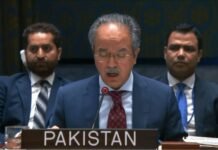Sharm El Sheikh, 12 November 2022 (TDI): Several leaders took part in the seventh day of COP27, today in Egypt, with the theme of Adaptation and Agriculture. This day led to various initiatives and developments.
Initiatives
Al-Sayed el-Quseir, Egypt’s Minister of Agriculture, introduced the Food and Agricultural for Sustainable Transformation (FAST) initiative at COP27. This aimed to offer a long-term and sustainable solution to agriculture and food systems worldwide.
Sayed also stated that the FAST initiative “seeks to foster cooperation amongst relevant worldwide initiatives, networks, and alliances.”
On Saturday at COP27, the Climate Responses for Sustaining Peace (CRSP) Programme was launched. The mission of CRSP is to ensure that integrated climate responses promote lasting peace and progress.
This initiative will especially consider the needs of women, kids, and communities in vulnerable situations. Moreover, four pillars will support the initiative’s implementation.
These include the nexus between climate adaptation and peacebuilding, resilient food systems, the link between climate displacement, and advancing climate finance for maintaining peace.
Sameh Shoukry, the Foreign Minister of Egypt and the President of the COP27 called it “an important milestone that represents Egypt’s high level of ambition for COP27.”
In addition, Shoukry also established the Decent Life Initiative. This is a leading case study of sustainable rural development in Africa.
It will strengthen the United Nations Framework Convention on Climate Change (UNFCCC) implementation of the Paris Agreement.
Secondly, Decent Life Initiative will help African nations in executing their Nationally Determined Contributions (NDCs).
Furthermore, to connect the global delivery of nutrition with climate change policy action, Egypt and the World Health Organization developed the Initiative on Climate Action and Nutrition (I-CAN).
Sessions
In addition to these Initiatives, a package of over USD 150 million for helping adaptation in Africa was unveiled at a session on “Advancing Adaptation Action in Africa.”
Moreover, a session on how to prevent, reduce, and deal with loss and damage to infrastructure was observed. It focused on Artificial Intelligence (AI) and data analytics in Early Warning Systems (EWS) to lessen the effects of droughts and floods.
The second goal was to raise money to expand EWS in underdeveloped nations. Another session at COP27 on Adaptation Technologies presented how technology might help us adapt to climate change more effectively.
At the Climate Conference, US Climate Envoy John Kerry stated that “the US and Germany support Egypt’s Nexus on Water, Food, and Energy (NWFE) platform.
This focuses on lowering emissions, promoting renewable energy, and helping to achieve a world with zero net emissions.”
In this regard, Kerry underscored at COP27 that to increase climate funding, the US had negotiated several partnerships in Sharm El-Sheikh.
IR Scholar








